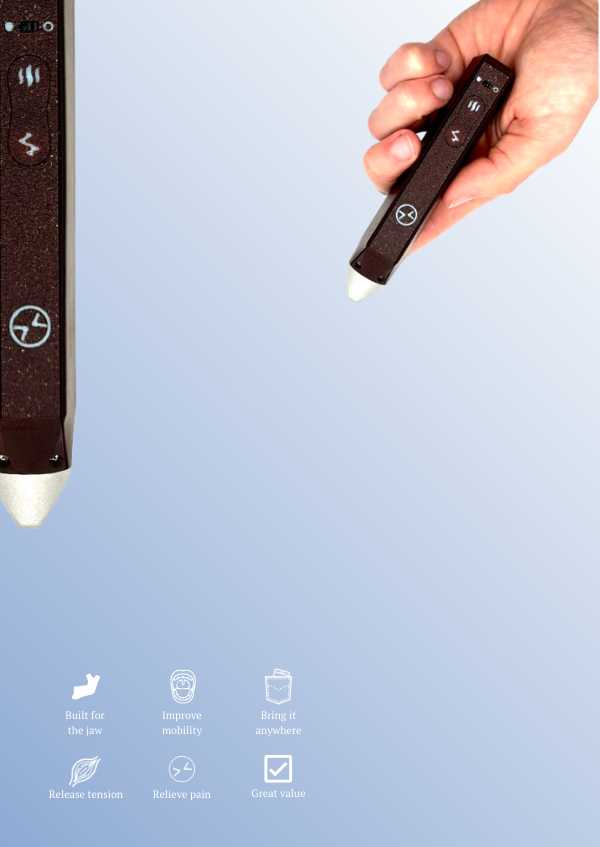Botox For TMJ - The Cure for TMJ Disorder or an Expensive Band-Aid?

If you’re dealing with TMJ, there’s a big chance you’ve heard of botox for tmj injections as a treatment option. Heck, after hearing success stories like this, it seems it might just be that miracle cure you’ve been waiting for.
“If you've been considering getting botox for your TMJ. DO IT. I got it done for the first time a couple weeks ago now. HUGE DIFFERENCE! I was so happy when I first started noticing results I cried. I've been on a soft food diet for several months now because the pain was so bad. It was also effecting my sleep, causing tension migraines, and was impacting my eardrum (it was so bad I was getting symptoms of an ear infection but with bleeding and it was effecting my hearing). This additional aid in relaxing my jaw has helped me to just relax my jaw if that makes sense. I noticed I'm clenching a lot less and even the pain in my ear is lessening. It's been such a huge help. Ou, and btw the neurologist gave me 90 units total. Had it covered by my insurance (Kaiser) because it was giving me severe headaches. Also, the myths of frozen face aren't true - if that's a worry of yours. Hope this encourages some to get this treatment done. Even if I had to pay out of pocket the relief I feel that I haven't in years is so worth it!”
[https://www.reddit.com/r/TMJ/comments/17kulmx/botox/]
But before you jump out of your seat and into the needle, it might be helpful to go over what Botox injections are, how they help, and what some downsides are.
Botox injections are a type of treatment that involves injecting a neurotoxin protein called botulinum toxin into the muscles. This protein helps to relax the muscles and reduce their activity, which can help to alleviate pain and other symptoms of various medical conditions.
Temporomandibular joint (TMJ) disorders are a group of conditions that affect the jaw joint, muscles and nerves. Symptoms of TMJ disorders include jaw pain, headaches, and difficulty chewing. Botox injections can be used to treat TMJ disorders by relaxing the muscles in the jaw and reducing tension.
As we’ve discussed in our other blog posts, this makes sense, because a large amount of TMJ cases arise from muscle spasms in important muscle groups such as the lateral pterygoid that can pull the disc in which your jaw sits out of pace, putting extra pressure on nervous tissue, jaw clicking and popping, as well as potential lockups down the road. (Read here) However, it's important to note that almost all Botox injections are in the masseter muscle, and therefore serve a different purpose.
Botox injections also help in the case in which TMJ disorders are caused by bruxism or clenching, because they are less likely to tense up at night and put undue stress on the TMJ. They also help relieve pain coming from muscle spasms.
The main reason people don't recommend Botox injections is a very valid one though. For most people, all it does it covers up the root problem, and robs you of the ability to solve any postural or habitual changes that are causing your TMJ Disorder. And on top of that it's super expensive, and temporary.
If you are considering Botox injections for TMJ, it is important to discuss the risks and benefits of this treatment with your healthcare provider because botox injections for jaw clenching or TMD are not without side effects. The most common side effects of Botox injections for TMJ treatment include headache, respiratory infection, flu-like illness, nausea, and temporary facial or eyelid droop. Botox may also cause a “fixed” smile that could last for six to eight weeks. There have also been stories of people's pain and "popping" getting worse/feeling like dislocations - although mostly subsiding once the botox wore off.
It is important to note that Botox injections for TMJ are not yet approved by the U.S. Food and Drug Administration (FDA). This doesn’t necessarily mean it won’t be effective, but what it does mean is that insurance is almost never going to cover Injections for TMJ disorders. However, Botox injections for migraines ARE approved by the FDA, so if you are suffering from headaches related to TMJD, then you may qualify.
My recommendation is to first try at home exercises, PT, habitual and postural changes first. Then if nothing works, Botox can be a fine option to at least try if you're willing to pay the price.
If you found this article interesting or informative, consider following us on instagram @mytmjrelief



